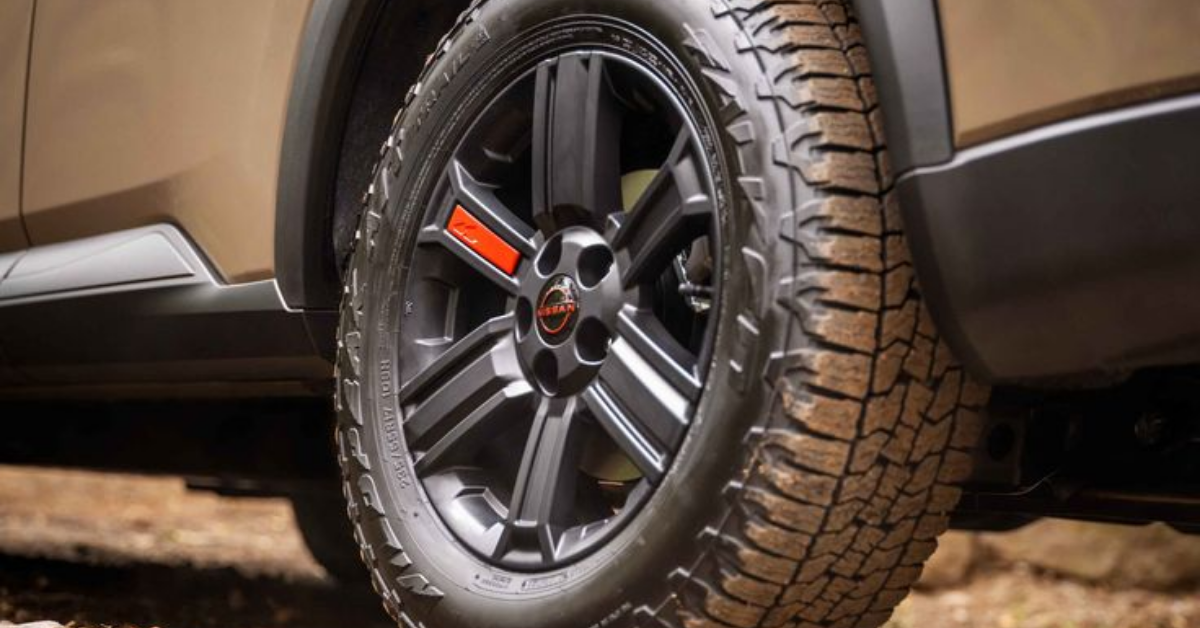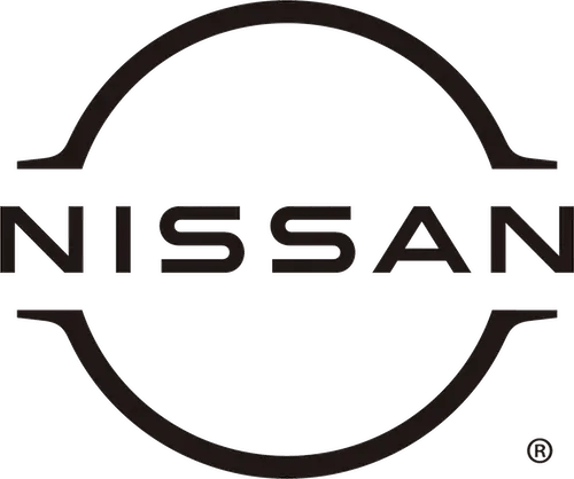Connect with us!
Categories
Will Trump's Tarrifs Affect the Cost of Nissan Parts? [2025]

If you're driving a Nissan Pathfinder or Rogue around Chicago, Crystal Lake, McHenry, or Woodstock, you might be wondering: Will Trump's tariffs affect the cost of Nissan parts in 2025? You're not alone. With a 25% tariff now in place on many imported auto components, drivers and DIY mechanics alike are bracing for potential price hikes on repairs and service. Whether you’re scheduling regular maintenance or preparing for a bigger fix, understanding how these tariffs influence the cost of Nissan components is more important than ever.
At M'Lady Nissan in Crystal Lake, we're tracking the latest trade policy changes so you don't have to. Keep reading to learn how these automotive tariffs may impact your wallet—and how our team can help you navigate it all with confidence.
How Trump’s 2025 Tariffs Could Affect the Price of Nissan Parts and Repairs
A new round of tariffs has many drivers asking the same thing: will Trump tariffs affect cost Nissan parts 2025? The short answer is yes, they likely will. And if you own a vehicle like the Pathfinder, these changes might hit closer to home than you expect.
The 2025 tariffs add new taxes on car parts brought in from other countries. These taxes are as high as 25% in some cases. Many Nissan parts are made outside the United States. That means prices may rise across the board.
Here’s what that could mean for you:
- Parts that used to be affordable could now cost much more.
- Shops may raise labor or service prices to cover new part costs.
- Repairs could take longer if parts become harder to get.
- Some drivers may see changes in their insurance due to higher repair bills.
Let’s say your Pathfinder needs brake pads, sensors, or filters. These items are often made overseas. With new tariffs in place, these common parts could now cost quite a bit more.
Even small increases add up over time. One repair may not break the bank. But several in a row might feel different.
If you want to know how these changes may affect your specific vehicle, the team at M’Lady Nissan is ready to help. We’ll walk you through the details and work to keep your repairs as affordable as possible.
What the Tariff Means for Nissan Parts Sourcing and Availability
The new automotive tariffs are not just about cost. They also impact how and where Nissan components are sourced. That means drivers could soon feel changes in parts supply—especially if they drive a model like the Rogue.
Nissan gets many of its parts from global suppliers. Some come from Asia, others from Europe or Mexico. With new tariffs in place, some of those parts may be delayed or cost more to bring in. This changes how fast repair shops can get what they need.
Here’s how this could affect your service visit:
- Some parts might be harder to find in stock.
- You could wait longer for orders to arrive.
- Dealerships may need to find new suppliers.
- Supply chains may shift, which could slow down repairs.
A common part like a headlight, sensor, or fuel pump could now take longer to get. If your Rogue needs a repair, this delay could stretch out your time without your car.
The impact of these automotive tariffs on Nissan components is still unfolding. Some parts may still move freely. Others might face new taxes, long delays, or both.
M’Lady Nissan is watching these changes closely. We stay in touch with our suppliers to make sure we get the parts you need, fast. If you’re worried about delays or backorders, our team can help explain what’s available now—and what may be on hold.
Will Repairs and Maintenance Cost More for Your Nissan in Chicago or McHenry?
New trade rules could change how much you pay to keep your car running. For drivers in McHenry or Chicago, this shift could show up at the shop—especially when it’s time for repairs.
Right now, many parts are made outside the U.S. If those parts cost more to bring in, the final price of service may go up too. A small part, like a sensor or filter, could see a small price jump. Larger items, like a full exhaust or engine part, could rise more.
Here’s what this could mean when you visit your local shop:
- Parts may cost more. Tariffs can raise the base price of items used in repairs.
- Labor could rise. If shops wait longer for parts, labor times may increase.
- Service may take longer. Backorders and part delays could stretch service times.
- Older cars may be hit harder. It may take more time and cost more to fix older models if parts are harder to get.
This is especially true for drivers who own models like the Rogue, which may rely on global suppliers for specific parts. The impact of trade policy on Nissan parts is not the same for every car, but it’s something all drivers should keep in mind.
At M’Lady Nissan, we work to keep your service smooth and fair. We track pricing trends and part supply to help you avoid big surprises. If you have questions about service costs or wait times in the Chicago or McHenry area, reach out to our team.
How Locally Built Models Like the Rogue and Pathfinder May Be Shielded
Not every car will feel the hit of new trade rules the same way. Some may see no change at all.
Models made right here in the U.S. may be better protected from price hikes. That’s good news if you drive a Pathfinder or Rogue. Both are built, in part, in North America. That may keep repair costs lower, even as import fees rise.
Why does this matter? Fewer parts need to come from outside the U.S. So, even if trade rules change, these models may stay stable in cost.
Here’s how local build can help:
- Fewer import fees. More parts are made and used here at home.
- Faster access to parts. Less delay for shops when ordering common items.
- Lower risk of delay. Supply chains are shorter and more stable.
- Steady labor times. Quicker access helps keep work hours low.
This may help stop a cost increase in Nissan service, at least for these key models. It’s one more reason to look at where your car is made. Local build can mean local savings.
At M’Lady Nissan, we keep track of these shifts so you don’t have to. If you're unsure how trade changes may affect your car, we’re here to help.
Nissan’s Strategic Response to the Tariffs: More U.S. Manufacturing
With new tariffs on the table, carmakers must act fast. Nissan is one of them. It’s looking to grow its U.S. build plans.
That could be a smart move. If more cars and parts are made in the U.S., there’s less need to rely on imports. That means fewer added costs for parts and repairs.
This shift may also help answer the question many drivers are now asking: Will Trump tariffs affect cost Nissan parts 2025?
Nissan is already taking steps. The Pathfinder, for one, is built in Tennessee. That helps avoid extra fees tied to parts from overseas.
Here’s how building more cars in the U.S. helps:
- Cuts down on tariffs. More local parts mean fewer new taxes.
- Helps control price. Costs stay more stable when supply chains are short.
- Supports U.S. jobs. More plants mean more work in local towns.
- Faster service times. Parts get to shops and dealers more quickly.
If Nissan keeps this plan in place, it may ease the pain of price hikes. It could also keep cars like the Pathfinder a smart choice for cost and value.
At M’Lady Nissan, we’ll keep you updated as these changes take shape. We’ll also work to make sure your service stays fair, fast, and clear—no matter how the rules shift.
FAQ: How Tariffs Could Impact Your Nissan Parts and Repairs
If you're a Nissan owner—or thinking about becoming one—you may be wondering how recent trade policy changes could affect your vehicle. These frequently asked questions can help you understand how tariffs might impact the cost, availability, and servicing of your Nissan.
How might tariffs on imported materials or vehicles raise the cost of Nissan parts?
– Tariffs raise the price of imported goods. If Nissan sources parts from outside the U.S., the cost of those parts may increase due to added import taxes.
Will certain components (engines, transmissions) be more affected than others?
– Yes. High-value components like engines and transmissions are more likely to be affected since they’re often sourced globally and are expensive to produce.
Are U.S. dealerships anticipating supply chain delays or parts shortages?
– Some dealerships are preparing for longer wait times and potential shortages, especially for models that rely on overseas components.
Could owners see higher maintenance and repair bills due to tariff-driven cost increases?
– Yes. If part prices go up, repair and maintenance costs are likely to rise as well, particularly for out-of-warranty vehicles.
Understanding these changes now can help you make smart decisions about your Nissan's care and upkeep. If you have more questions, the team at M’Lady Nissan is here to help.
Stay Informed and Explore Your Options at M'Lady Nissan
As the automotive industry faces changes due to tariffs, it’s important to stay informed about how they might affect your Nissan. If you're in Chicago, McHenry, Crystal Lake, or Woodstock, M'Lady Nissan is here to help. Whether you're looking for a new Nissan Pathfinder or Rogue, our team is ready to guide you through your options.
We invite you to explore our wide selection of vehicles, along with helpful resources like our guide to financing your next Nissan. If you’re wondering how tariffs could impact your car’s maintenance costs, it’s worth checking out our article on 9 signs your Nissan needs a new battery. For those looking to save, The Art of Negotiation can help you learn how to secure the best deal when buying or leasing your next vehicle.
Have more questions? Visit or contact us today at M’Lady Nissan for personalized answers and service.



 Call Sales
Call Sales Directions
Directions